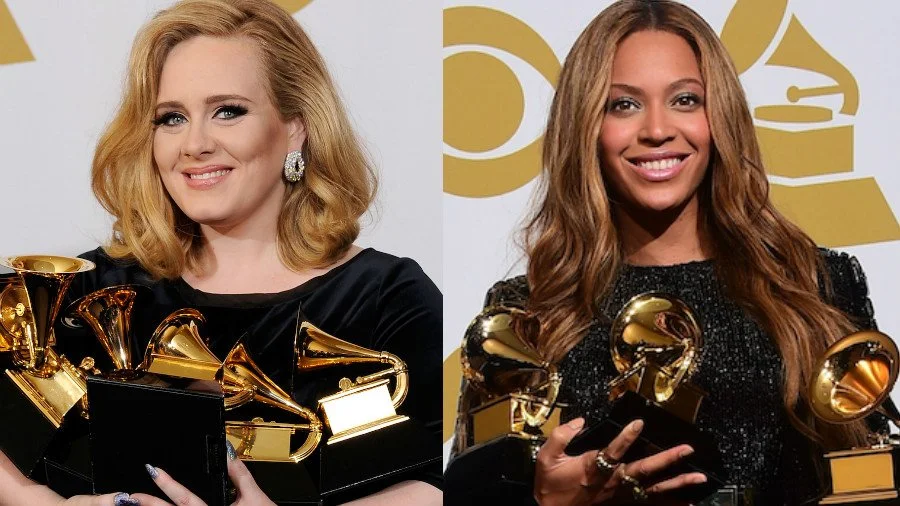Beyoncé was robbed, but should it be a surprise anymore?
The 2017 Grammys will always be remembered by the arrival of Chance the Rapper and an important step in the independent revolution. Chance stole the show from beginning to end, from his three Grammy wins themselves to delivering the best live performance of the night with his rendition of “How Great” and “All We Got” with Kirk Franklin and Francis and The Lights. Other performances included the highly political rap pack A Tribe Called Quest and Anderson Pa.ak teaming up for three songs, calling Donald Trump “President Agent Orange” in the process of delivering the most political moment of the night; and Ed Sheeran, Beyoncé and Bruno Mars delivering performances to be remembered, for one reason or another.The awards went largely as expected, and largely as deserved. David Bowie deservedly won three awards posthumously, for both Best Alternative Music Album, Best Rock Song and Best Rock Performance. Flume won Best Dance/Electronic Album for his work “Skin”; The Chainsmokers won Best Dance Recording for “Don’t Let Me Down”; and Twenty- One Pilots won the award for Best Pop Duo/Group Performance for “Stressed Out”. Chance the Rapper finally won three Grammys on the first night he was eligible, taking home awards for Best Rap Performance for “No Problem”, Best Rap Album and Best New Artist. However, very quickly you began to get the sense that something was going wrong voting-wise for the Recording Academy.There is no question, in any normal individual’s mind, what album should have won the award for Best Album. Beyoncé’s “Lemonade” was the most cohesive and understandable album on the list of nominees, and featured some of the best songs Beyoncé has ever recorded. It was very succinct, and each track stepped seamlessly into the next, on a wave of heartbreak, anxiety and anger. It encapsulated what it felt like to be human, and what it felt like to feel underappreciated. Adele’s “25”, while a good album, was not on that level, and it’s saying something when even the person who wrote the album didn’t want it to win. When Adele won Best Album, it was a clear choice the Academy had made: the Academy had decided to play it safe. Giving it to Beyoncé would have, in their eyes, brought on too much negative publicity (which I don’t quite understand) and so they decided to give it to everyone’s favourite down-to-earth superstar, thus making the award show lose another sliver of the little credibility it had left. While it can be argued that streaming the album exclusively on Tidal may have hindered Beyoncé’s chances, this shouldn’t come into consideration if we’re talking purely about the music. Adele and Beyoncé were nominated side by side in four separate categories and in each one Adele walked away with the prize. While this is understandable for Record and Song of the year, as “Hello” is a better single song than the likes of “Formation” and “Hold Up”, Lemonade’s loss was the biggest of the night.This isn’t the first time the Recording Academy hasn’t awarded albums and artists that were the most deserving. Last year, they pulled practically the same stunt, awarding Taylor Swift the award for Best Album over the more deserving Kendrick Lamar for his album “To Pimp A Butterfly”, which is already considered a rap classic, merely because it was political. Swift was pop’s queen, they thought; why not give her everything?The Grammy voting process is quite complicated. The process begins with record companies and artists submitting works to be considered for nomination (famously this year, Frank Ocean decided not to submit either of his two albums for Grammy consideration). Next, a group of 350 industry experts are given all albums and asked to consider which categories each album and songs fit, and what they should be considered for. This phase is not about the quality of the work, but the category in which it deserves to be considered for. Phase three involves first round ballots. Each member of the voting board is asked only to vote in their genre of expertise (They have a maximum of 15 sub-categories to vote for within each genre) and the 4 main prizes (Album, Record, Song, New Artist). The next phase, which can be the one that creates such controversies as the ones mentioned, is the special nominating committees. This is made up of all Academy members from the Academy’s chapter cities. These chapter cities are: Atlanta, Chicago, Florida, Los Angeles, Memphis, Nashville, New York, Pacific Northwest, Philadelphia, San Francisco, Texas and Washington, D.C. The final step in the voting process is similar to step three, except that each member is only given 5 nominees per category to choose from. Within this process, surely there is a way to stop this downright favouritism? It’s unclear where or when a change is going to appear, but until then we are stuck with unfair bias.So the real question is, should we go into future Grammy’s looking not to be disappointed? No. The Grammy’s are a reflection of the music industry as a whole, one-minded and one-sided. If you create the most buzz and sell the most records you win, no matter how good your piece of work is. Should we be surprised that that’s how it works? Not really. Will I still give out about it next year? Definitely yes.


